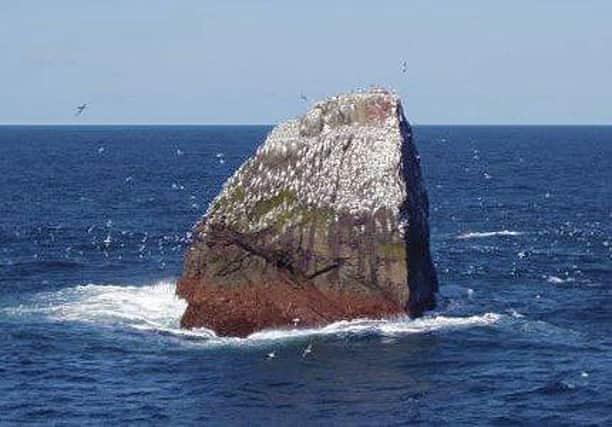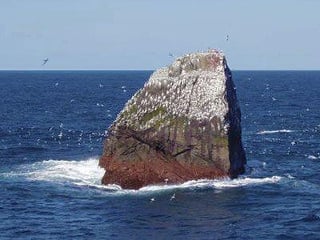Scotland and Ireland in new row over Rockall fishing rights after Brexit


The issue has come to a head just days after the UK officially left the EU, when Scottish government officials boarded an Irish boat and warned the skipper that fishing within 12 nautical miles of the islet was illegal.
The move has caused anger with government and industry leaders in Ireland, who dispute the claim and say they have rights to fish in the area.
Advertisement
Hide AdAdvertisement
Hide AdDespite its diminutive stature, Rockall – an eroded volcano located 260 miles from the Western Isles and officially part of Scotland – has been a cause of contention for decades.
The UK claimed it as part of its territory back in 1955 – a position the Irish government has refused to recognise.
Neighbouring nations Iceland and Denmark have also contested ownership in previous years but sovereignty was settled in the UK’s favour in 2014.
The accepted international legal position is that states have “a right to establish the breadth of its territorial sea up to a limit of 12 nautical miles, be that for its mainland or for islands under its sovereignty”.
But the Irish believe the fact Rockall is unable to support human habitation means it cannot be classed as a territory.
The dispute over access to fishing grounds reached boiling point in the summer of 2019, when then Scottish cabinet secretary for external affairs Fiona Hyslop gave formal notice that Scotland would take enforcement action against Irish boats operating inside a 12-mile zone around the rock.
The announcement came following an increase in activity from Irish vessels in the area.
Now the advent of Brexit and the terms of the UK’s deal with the EU has reignited tensions.
Advertisement
Hide AdAdvertisement
Hide AdAdrian McClenaghan, skipper of the trawler Northern Celt, from Co Donegal, told Irish state broadcaster RTE that crew from a Scottish fishing patrol ship boarded his boat to keep it from shooting nets in the contested waters.
He said: “We were fishing in Rockall and members of the crew from the Jura boarded us. They informed us that we could no longer fish inside the 12-mile limit.”
Elspeth Macdonald, chief executive of the Scottish Fishermen’s Federation, said: “The exclusion of EU vessels fishing within 12 miles of Rockall is a direct consequence of the Brexit fisheries deal, and it is important that EU vessels comply with the new rules.
“If they fail to do so they will be fishing illegally, something that the EU itself strongly opposes.”
A Scottish government spokeswoman confirmed a Marine Scotland patrol crew had boarded the Irish boat,
“The vessel was suspected of fishing in Scotland’s marine areas without the right to do so and in breach of its licence conditions,” she said.
“As per long-standing arrangements, Marine Scotland has reported the breach of licence conditions to their Irish and UK counterparts.”
Irish fishermen have said they hope diplomacy can end the dispute.
Advertisement
Hide AdAdvertisement
Hide AdSeán O’Donoghue, chief executive of Killybegs Fishermen’s Organisation (KFO), said: “This has been a long-running saga, going on for at least 40 years.
“It came to a head two years ago and a diplomatic solution was sorted out at the time.
“But it seems this is no longer being recognised, which is disappointing to say the least.
“As far as we’re concerned you can’t declare a 12-mile zone around an uninhabited island.
“This has been a bone of contention between the two jurisdictions for years.
“Now it seems Brexit has exacerbated the situation.
“I would hope diplomacy can solve the matter and allow an accord that has been in place for around 50 years to continue.”
A message from the Editor:
Thank you for reading this article. We’re more reliant on your support than ever as the shift in consumer habits brought about by coronavirus impacts our advertisers.
If you haven’t already, please consider supporting our trusted, fact-checked journalism by taking out a digital subscription. Visit https://www.scotsman.com/subscriptions now to sign up.
Comments
Want to join the conversation? Please or to comment on this article.
